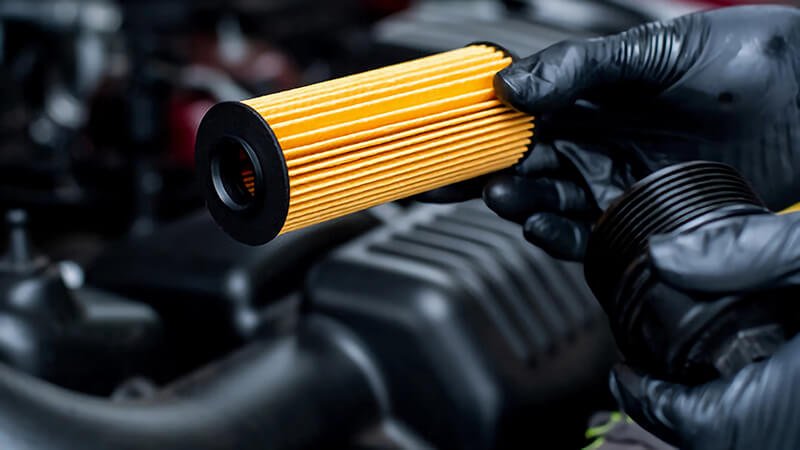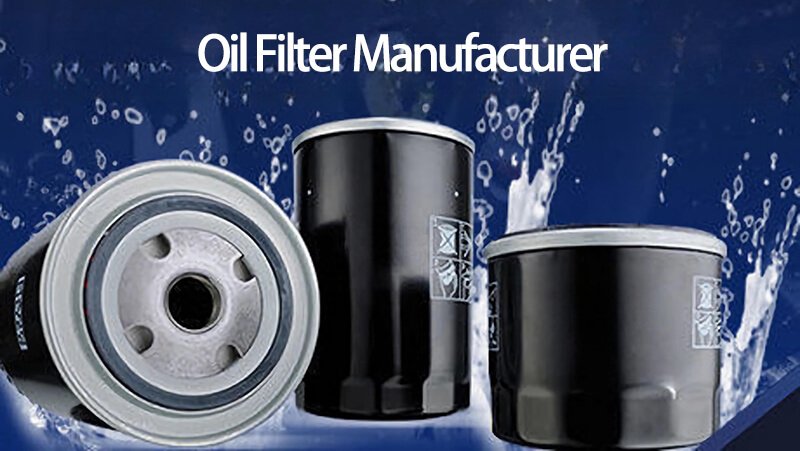When I first got into the business, I thought oil filter size was all about fitting the right engine space. But one conversation with a UK distributor changed that. His long filters were clogging fast in turbo engines—and that's when I realized: it's not about how long the filter is, but how it's built.
Short oil filters can outperform long ones—if they’re built with advanced synthetic media. It’s not the length, but the filtration quality inside that matters most.
Most people assume bigger means better. But in oil filtration, that logic doesn't always hold up. Let’s dive deeper and explore what makes short and long oil filters truly different, and why Runex Auto’s filter design leads the way.

Does the length of an oil filter matter?
People often think a longer oil filter means more capacity, longer life, and better performance. That’s not always true. One of our UK clients used long filters across their turbo fleet—yet they saw early clogging and pressure issues.
The length of an oil filter only matters when paired with the right media. Without proper media, even long filters can clog early or fail under pressure.
Why length alone doesn’t tell the whole story
Longer filters can hold more debris—but only if the internal media allows it. If the filter media is made of cellulose or low-grade paper, it can clog early despite having extra volume. On the other hand, a compact filter with high-quality synthetic media can trap smaller particles, hold more contaminants, and maintain flow longer.
Key differences in filter design
| Feature | Short Filter (Synthetic Media) | Long Filter (Cellulose Media) |
|---|---|---|
| Filter Media | Advanced synthetic blend | Basic cellulose or paper |
| Filtration Efficiency | Up to 99% @ 20 microns | ~85% @ 30 microns |
| Debris Capacity | High (dense layered fibers) | Moderate (single-layered) |
| Flow Rate | Consistent under pressure | Can drop under load |
| Durability | Withstands heat + pressure | Susceptible to collapse |
The real game-changer is media technology1, not size. That’s why we always advise clients to look beyond appearance and ask what’s inside the filter.

Are longer oil filters better?
It’s tempting to think so. A longer oil filter seems like it should filter better, hold more contaminants, and last longer. But one of our fleet clients found the opposite. They used long filters and still had abnormal engine wear. We replaced them with compact filters made with advanced synthetic media—and wear rates dropped significantly.
Longer oil filters are only better if the internal media is optimized. Without that, extra length can actually make things worse—like pressure drops or uneven flow.
Why more isn’t always better
A longer filter gives more room, yes—but if it’s filled with low-efficiency paper media, the benefit is lost. Worse, it may delay oil bypass, reduce flow under cold starts, or break down under high RPM pressure.
What Runex Auto filters do differently
At Runex Auto, we don’t chase size. We engineer around performance. Our short filters use multi-layer synthetic media2 designed to:
- Trap ultra-fine particles3 down to 15 microns
- Maintain steady oil flow under 100+ PSI
- Resist collapse even in high-heat turbo systems
- Maximize surface area via pleating density—not just length
We tested our short filters side-by-side with longer generic models. Under simulated turbo conditions, our filters lasted 22% longer before reaching pressure drop thresholds4. In oil filtration, quality always beats quantity.

What is the difference between short oil and long oil?
This one’s tricky because the terminology confuses many. People sometimes use "short oil" or "long oil" to refer to the filter length—but also, mistakenly, to oil change intervals or viscosity. Let's clear that up.
The terms “short oil” and “long oil” refer to oil filter lengths, not the oil itself. Short filters are more compact; long filters are extended canisters. What matters is how each fits the engine’s flow demands and maintenance cycles.
Why this matters in real-world applications
Some high-performance engines need shorter filters5 to maintain pressure and avoid flow lag. Others, like diesel trucks, benefit from longer filters6 with high-capacity designs. But again—it’s not the casing, it’s what’s inside that matters.
Matching filter to engine specs
| Application Type | Ideal Filter Type | Notes |
|---|---|---|
| Turbocharged gasoline | Short w/ synthetic media | Needs pressure stability |
| Commercial diesel | Long w/ multi-layer media | For high soot load |
| Compact passenger car | Short or medium | Focus on flow + longevity |
| Off-road/agricultural | Long, rugged housing | Handles extreme debris |
When a customer asks me, “Should I use a longer filter?” I ask them back: “What kind of oil flow and pressure does your engine need?” That tells me more than the size ever will.
What are the two types of oil filters?
In automotive filtration, oil filters are broadly classified by media type and function. Most fall into two categories: spin-on filters and cartridge filters. Each has short and long versions, but their construction and use cases vary.
The two main types of oil filters are spin-on (canister-style) and cartridge (element-only). Each has benefits, but performance depends on media type—not the casing.
Understanding filter types and performance
- Spin-on filters: Most common. Easy to replace. Comes as a sealed metal canister with built-in media.
- Cartridge filters: Increasingly popular in newer vehicles. Only the internal filter media is replaced, not the casing—reducing waste.
Where Runex Auto stands out
We manufacture both types. But we focus heavily on customizing the internal media7 based on customer needs:
| Filter Type | Runex Auto Features | Ideal For |
|---|---|---|
| Spin-On | Steel casing, synthetic media, bypass valve | Fleets, turbocharged engines |
| Cartridge | High-density layered media, eco-friendly design | New-model vehicles, OEM clients |
A UK client once told us their cartridge filters were collapsing under load. We redesigned their media structure using a reinforced synthetic lattice8, and the failures stopped. Whether spin-on or cartridge, our filters are tested to meet OEM standards and exceed ISO 4548-12 efficiency ratings9.

Conclusion
So what’s the real difference between a short and long oil filter10? It’s not just the casing. It’s the media inside. At Runex Auto, we’ve seen compact filters outperform longer ones because we focus on synthetic performance—not just size. Whether you're sourcing for turbo fleets or standard vehicles, choosing the right oil filter isn’t about inches—it’s about what’s engineered to last.
-
Understanding media technology is crucial for selecting effective filters that enhance performance and longevity. ↩
-
Explore how multi-layer synthetic media enhances oil filtration efficiency and performance, ensuring better engine protection. ↩
-
Learn about the technology behind trapping ultra-fine particles in oil filters, crucial for maintaining engine health and efficiency. ↩
-
Understanding pressure drop thresholds can help you choose the right oil filter for optimal engine performance and longevity. ↩
-
Explore how shorter filters can enhance pressure stability and performance in high-performance engines. ↩
-
Learn about the high-capacity designs of longer filters and their benefits for diesel engines, especially in handling soot load. ↩
-
Explore how customizing filter media can enhance performance and meet specific customer needs, ensuring optimal functionality. ↩
-
Learn about the innovative reinforced synthetic lattice design that improves filter durability and performance under load. ↩
-
Understanding ISO 4548-12 ratings can help you choose high-performance filters that meet industry standards for efficiency. ↩
-
Know more about the best quality OEM Oil Filer from Runex Auto. ↩













